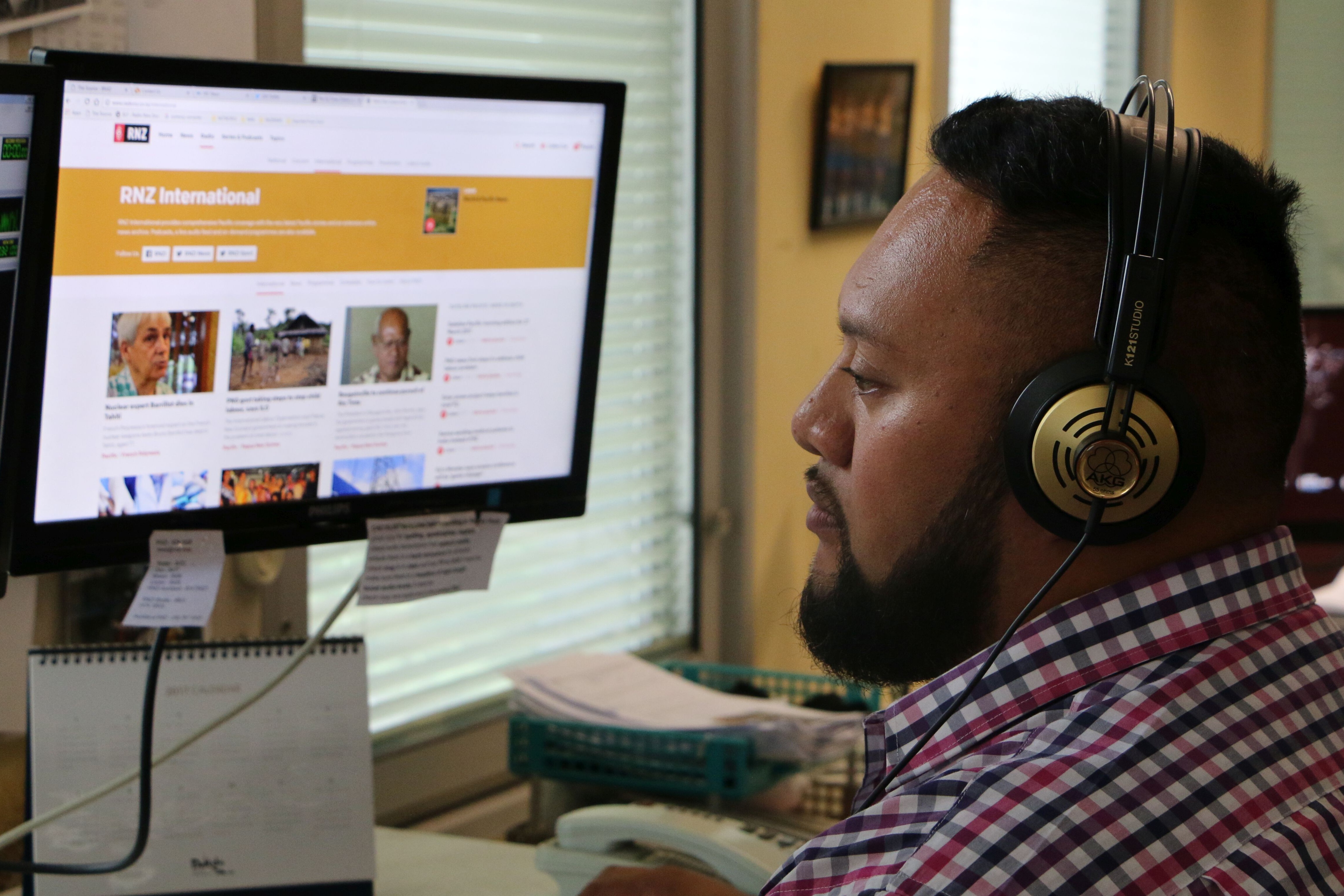Apply now for our 2019 Global Grant
From Canada to New Zealand and Pakistan to Hong Kong, read about our bursars’ projects and travels!
Once again, with support from the BBC Grace Wyndham Goldie Trust, the PMA provided seven travel bursaries that enabled media professionals to travel across the globe to train and learn from other public broadcasters.
The support we receive from the Grace Wyndham Goldie Fund for our bursaries enables the PMA to identify professionals and projects that benefit organisations as well as individuals. The bursaries allow participants to share knowledge and experiences as well as enabling them to build fruitful relationships between media organisations and colleagues.
This year’s intake included a senior
producer exploring how to make better and more engaging health radio programmes; a media and content manager learning about how media regulators deal with disinformation; a product and audience lead interviewing leaders in innovation, data and digital content development; a reporter learning how to better serve multilingual communities through radio; and a media manager sharing his knowledge and approach to team building and adapting to change.
Beyond the wider aim of developing knowledge and skills, PMA bursaries provide a unique opportunity for international networking. They also enable individuals to develop new ways of exercising freedom of expression and facilitate work on projects that support the UN’s Sustainable Development Goals (SDGs).
The Public Media Alliance is grateful to the Grace Wyndham Goldie Trust for their continued support for these bursaries and for upholding the values of Public Service Broadcasting globally.
You can read about our bursars’ experiences below
Afifa Afroz
From Bangladesh Television (BTV) to Doordarshan, India
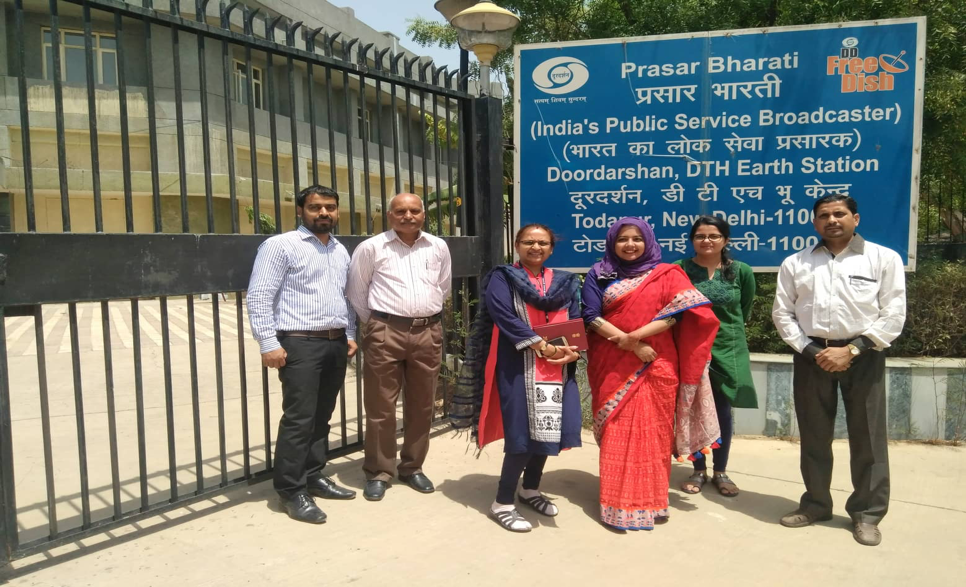
During her exchange, she visited various production centers and other regional offices of Doordarshan, the National Academy for Broadcasting and Multimedia (NABM) and the DVB-T2 Transmitter site in Todapur. Her trips and visits enabled Afifa to connect and exchange knowledge with local staff.
“One of the best ways to learn is through interaction and networking with others,” said Afifa, “and I believe that any kind of International travel provides this opportunity. Sharing and learning more about Doordarshan’s experience on DTH has enriched my practical knowledge on the system. The experience gained through the visit will be highly beneficial for upgrading my organisation on this aspect. I am also very happy to have built a personal network with Doordarshan colleagues, which will be sustained and nurtured in the days to come.”
Claire Murdoch
From Radio New Zealand (RNZ) to the United States
Claire travelled to the US to research best practices in digital media and broadcast organisations for digital innovation and audience development. The aim was to bring this knowledge back to New Zealand to inform the programme of product development as well as informing RNZ’s mission as the country’s only public broadcaster to create an informed and connected nation, contribute to a major democracy research project and develop the organisation’s data journalism capabilities.
In order to do so, she wanted to interview leaders in both public/not-for-profit and commercial media organisations in the United States, observe their teams at work and understand how things work operationally.
“This has been a pinch-yourself, crazy-lucky opportunity that I have learned from enormously“
Claire went to NPR, in Washington D.C., where she gained insights on how to better plan to communicate the social and democratic value of RNZ’s work as well as the discoverability of their programmes, product, stories and their relevance to the audience.
At the Associated Press in New York, Claire received a deeply informed crash-course on AI, immersive storytelling and machine learning in journalism, which later informed the development of RNZ’s first voice-activated service, an Alexa skill, which enables people to receive up-to-date bulletins, read by RNZ newsreaders, 24 hours a day, 7 days a week launched in February.
At the New York Times, Kinsey Wilson – the then Executive Vice President for Product and technology – generously shared his strategic insights into organisational strategy, digital platforms and tools, product development and staff structures at NPR and the Times which directly improved RNZ’s apps and podcasts.
“This has been a pinch-yourself, crazy-lucky opportunity that I have learned from enormously,” said Claire. “It has empowered [my knowledge] about both tech and media, built invaluable professional networks, (I hope) enriched some of my colleagues and, above all helped RNZ help the audiences it serves.”
Hamid Ullah Khan
From the Pakistan Broadcasting Corporation to Radio Television Hong Kong (RTHK)
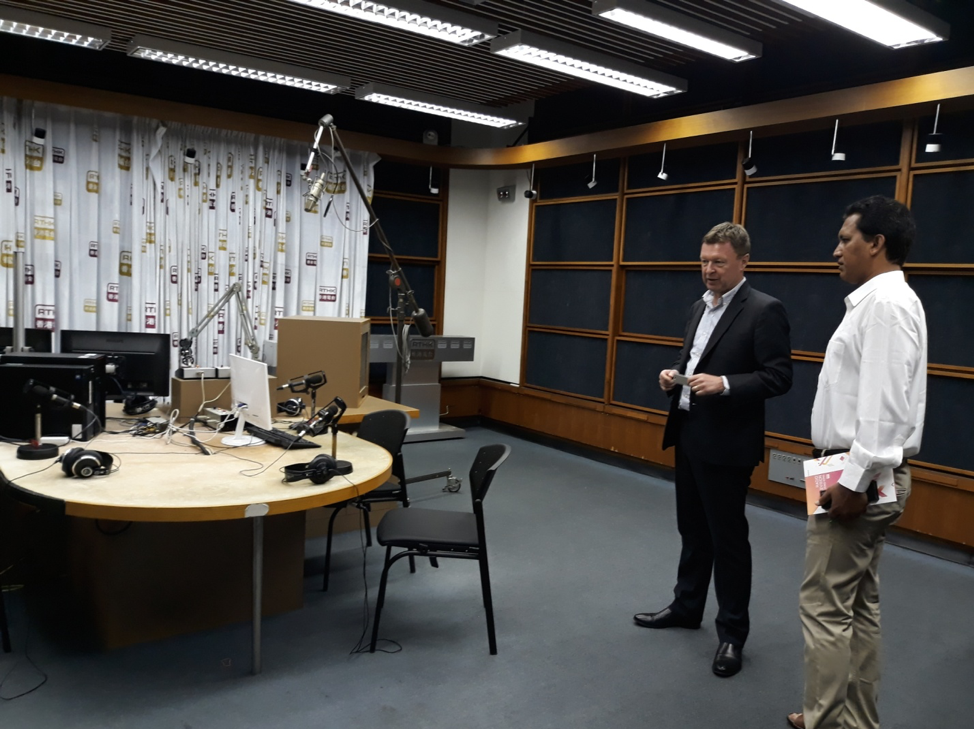
Hamid’s goal was to enhance programme production and the presentation of radio programmes on health, and observe other radios stations’ methodologies and strategies for the promotion of health education via radio.
Hamid went to RTHK in Hong Kong where he met various members of staff and heads of RTHK’s Radio 3. He also participated in meetings where he learned about the formation and planning of new ideas, planning of health communication content and programme production. He also learned about the essential role creativity plays when it comes to radio production and how it can be applied successfully to promote health content and crafting better radio programmes on health. The experience left Hamid with a wide array of valuable lessons, which he will use to bring creativity and make his programmes on health related issues more interesting for listeners in Pakistan
“Their ideas and strategies gave me enthusiasm to better work for people in Pakistan and I will apply these new ideas to improve the production of health programmes in the country,” Hamid said. “I now have the confidence that I am able to put into practice all that I have learned and that I will be able to produce better programmes on health communication with new ideas and planning.”
Masego M. Jeremiah
From the Botswana Communications Regulatory Authority (BOCRA) to the Organisation of News Ombudsman & Standards Editors (ONO) conference
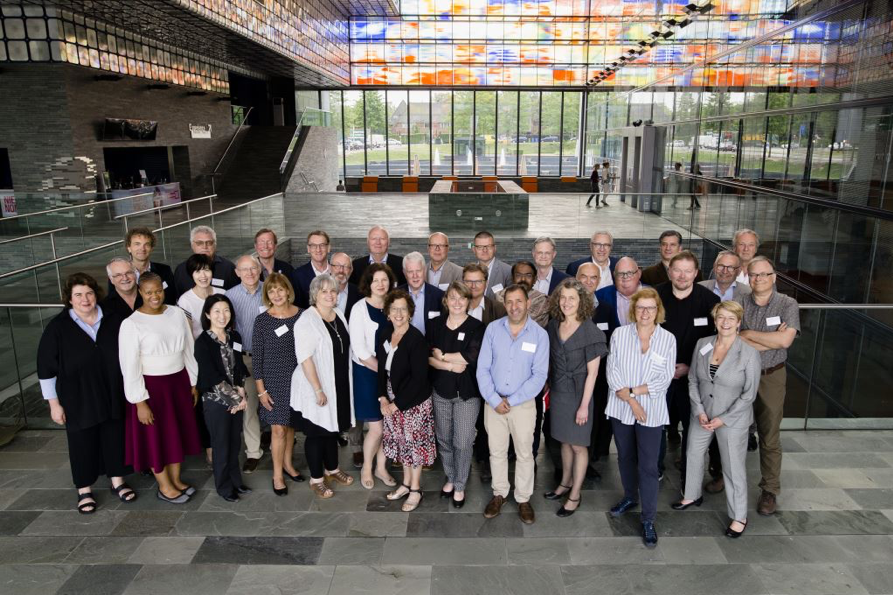
In order to gain these insights, Masego attended the Organisation of News Ombudsman & Standards Editors (ONO) Conference to learn how different jurisdictions deal with disinformation and ensure the general public is not misled.
At the conference, Masego networked with colleagues and learned about the role of news ombudsmen and public editors in terms of monitoring news, dealing with audience complaints, upholding the principles of media ethics and the importance of verification toto limit the spread of misinformation.
Masego said: “It made me feel excited to witness the different aspects of the conference which I intend to share with broadcasters in Botswana and even the idea of introducing news ombudsmen or public editors who will hold them accountable for their work and hence reduce complaints that would otherwise be escalated to the regulator.”
Mathieu Simard
From CBC/Radio Canada to Radio New Zealand
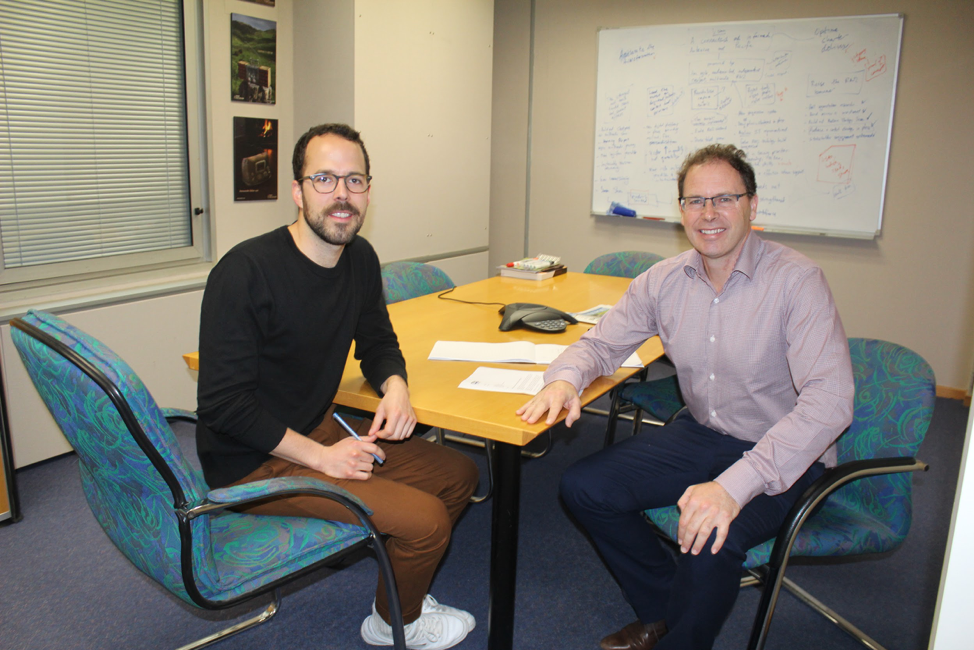
Mathieu wanted to observe RNZ’s approach in serving communities across the nation with their respective languages, celebrating the country’s multiculturalism. He wanted to understand how to better incorporate different cultures and languages into one news operation, from radio shows to websites.
Knowing that reporting in different languages or for different communities can be challenging, Mathieu undertook an internship with RNZ to acquire tips and advice and compare practices.
Mathieu observed the way RNZ approaches journalism and shadowed staff members in gathering and managing resources for Māori content. He attended several production meetings where he learned about workload, working conditions and best practices.
Mathieu was enthused by RNZ’s strategy and how far ahead it is when it comes to indigenous reporting initiatives, such as sensitivity awareness workshops for staff members, internships for young Maori journalists and more. Mathieu also took advantage of his time at RNZ by doing some news gathering of his own and pitching stories about the country to his managers in Canada. He conducted interviews and structured radio pieces which will air this summer across CBC’s networks.
“I have developed new skills and found inspiration in RNZ’s best practices. I am positive that I will take what I learned during my time at RNZ and bring new ways of looking at indigenous reporting to CBC/Radio-Canada,” Mathieu said. “I’m convinced that this travel experience will have an impact on what I do every day and help me become a better journalist.”
Nts’epase Nkokana-Heshepe
From the Lesotho National Broadcasting Services (LNBS) to the South African Broadcasting Corporation (SABC)
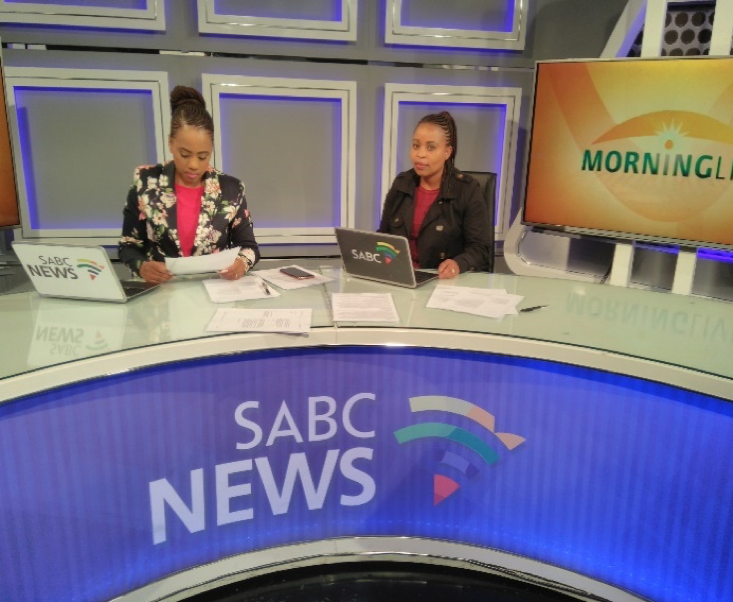
As an acting news editor for Lesotho Television, Nts’epase wanted to gain more experience, knowledge and skills from SABC so that she could share them with her colleagues at LNBS, as there have not been many training opportunities in her organisation. The wider aim was to help improve Lesotho Television as a whole, and especially advise on the creation of departments dedicated to digital news and research.
Nts’epase visited all SABC departments, attended production and editorial meetings and learned about the news production processes and how editors and producers plan their day. She accompanied a reporter on assignment and together they conducted interviews and wrote a story together. Nts’epase learned best practices in and outside the studios and the differences in production methods between the two organisations, and she was also given the chance to be live on air to talk about her experience at the SABC next to national TV anchors.
“I am optimistic that I will be able to share what I have learned with my bosses as well as my colleagues to ensure we improve Lesotho National Broadcasting Services,” Nts’epase said. Though we still have a challenge of resources and workforce I believe we can do our best with the little we have and come up with good news items as well as current affairs shows.”
Peter Block
From the University of Westminster to the Mauritius Broadcasting Corporation (MBC)
Peter wanted to use his extensive practical and academic background in the global media business to work with MBC to develop the first steps in achieving the broadcaster’s new goals and objectives by working with senior managers and staff at MBC in creating a road map. The overall objective was to give managers at MBC an opportunity to reflect on their work and discuss in confidence the issues that mattered to them.
Peter took a “learning-by-doing” approach to the training programme and actively encouraged discussion amongst participants to bolster future team work. Over five days the course covered recent innovations in production development and broadcast management through the use of case studies. The course also focussed on how best to manage change, build effective teams and future developments. The format for each day was to have an informal talk on a topic followed by group workshops and plenary feedback sessions. The week finished with the three groups presenting a programme pitch to a commissioning panel.
Informal and formal feedback from MBC confirmed that the course met their expectations. It enabled the participants to review their approach to team building, ways of working, managing change and innovation as well as the potential issues facing their latest strategy. As one participant put it, they had an MBA experience in a week! The MBC HR team and Chair also expressed satisfaction with the outcomes, with the hope to build on this experience.
Interested in applying for a PMA Travel Bursary? Our next round of applications are now open. Click here to find out more
Header Image: Afifa Afroz at the DD news studio
